Introduction
Are you a small business owner looking for the perfect accounting software to streamline your finances? Look no further than FreshBooks and QuickBooks, two of the most popular options on the market. While FreshBooks vs QuickBooks both offer similar services, they have their own unique features that set them apart.
In this comprehensive review of FreshBooks vs QuickBooks, we will break down each platform's strengths and weaknesses in areas such as client management, invoicing, expense tracking, reporting, and pricing so you can make an informed decision about which one is right for you. Let's get started!
Setting up your account
Setting up your account on FreshBooks or QuickBooks is an important step towards getting started with these popular accounting software programs. Both platforms offer a straightforward and user-friendly registration process, but there are some differences in how they handle the setup.
When registering for FreshBooks, you will need to provide basic information such as your name and email address. You'll also be asked to create a password and choose your time zone. Once you've completed these steps, you can start customizing your account by adding your business details, logo, payment gateway integrations and more.
On the other hand, when setting up an account with QuickBooks you have two options: self-employed or small business. Depending on which option you select during registration, the platform will guide you through different processes tailored to fit each type of user's needs.
Regardless of which platform you choose it's important to keep in mind that both require accurate data entry from the beginning so that all future financial reports are precise. Additionally make sure to take advantage of any tutorials offered during sign-up as they can help get off on the right foot with either system.
Managing clients and invoices
Managing clients and invoices is a crucial aspect of any business, whether you're a freelancer or running a large corporation. Both FreshBooks and QuickBooks offer robust tools for managing your clients and invoicing them efficiently.
With FreshBooks, you can easily create professional-looking invoices that are customized with your company branding. You can also set up recurring invoices for regular clients, which saves time and effort. Another great feature is the ability to accept payments directly from the invoice through various payment gateways.
QuickBooks offers similar features with the added benefit of being able to track customer balances and overdue payments in real-time. This helps keep your cash flow organized and ensures that you get paid on time.
FreshBooks vs QuickBooks both platforms allow you to manage client information such as contact details, billing addresses, payment terms, notes about specific projects or orders they've made in the past - all in one place. This makes it easy to stay organized when dealing with multiple customers at once.
Both FreshBooks and QuickBooks provide excellent solutions for managing clients and invoicing them effectively. It's important to determine which platform best fits your needs based on factors such as pricing plans, features required for your business size/type etc.
Tracking expenses
Tracking expenses is a crucial aspect of managing the finances of your business, whether it's small or large. With FreshBooks and QuickBooks, tracking expenses has never been easier.
Both platforms allow you to categorize and track all your business-related expenses in one place. You can easily upload receipts, invoices, and bills to keep accurate records of your spending. With the powerful reporting features provided by both software packages, you can quickly generate reports on how much money is being spent on each category.
One unique feature that sets FreshBooks apart from QuickBooks is its receipt capture functionality. Using the mobile app, users can take pictures of their receipts using their phone’s camera and directly upload them into FreshBooks as an expense – no need for manual data entry.
On the other hand, QuickBooks offers more advanced options when it comes to importing bank transactions automatically via Yodlee integration or direct feed access with many banks around the world.
The FreshBooks and QuickBooks Both platforms offer excellent tools for tracking expenses tailored to different user needs. Make sure you choose wisely according to your company size and nature!
Reports and features
Reports and features are a crucial aspect of any accounting software, including FreshBooks and QuickBooks. Both platforms offer an array of reports that can help you analyze your business's financial health.
FreshBooks offers standard reports like Profit & Loss, Balance Sheet, Expense Report, and Sales Tax Summary. Additionally, it provides unique reporting functionality such as Client Aging Reports to track overdue invoices by client.
On the other hand, QuickBooks has more in-depth reporting capabilities with customizable reports like Job Costing Reports for tracking job profitability and Forecast vs Actuals Reports for monitoring budget performance.
Both applications allow users to access real-time data on their dashboard without having to generate custom reports repeatedly. Moreover, they have mobile apps that let you view essential data on-the-go.
When it comes to features, both platforms have strengths worth considering depending on your needs. For instance, FreshBooks is excellent for invoicing while QuickBooks excels at bookkeeping tasks such as bank reconciliation or inventory management.
When choosing between FreshBooks vs QuickBooks in terms of reporting and features - consider your business requirements first before making a decision
Pricing
Pricing is a crucial factor when choosing accounting software for your business. FreshBooks and QuickBooks offer different pricing plans that cater to various business needs and budgets.
FreshBooks offers four pricing plans: Lite, Plus, Premium, and Select. The Lite plan starts at $6 per month, which includes invoicing and expense tracking for up to five clients. In contrast, the Select plan caters to bigger businesses with customized features and personalized support.
QuickBooks offers three pricing plans: Simple Start, Essentials, and Plus. The Simple Start plan costs $25 per month while the Plus plan costs $70 per month. Both plans include basic features like invoicing and payment processing but differ in terms of advanced features such as inventory tracking.
It's worth noting that both FreshBooks and QuickBooks offer discounts if you opt-in for an annual subscription instead of monthly payments.
Ultimately, the choice between FreshBooks or QuickBooks depends on your business's specific needs regarding budgeting constraints or feature requirements.
Conclusion
After a thorough comparison of FreshBooks vs QuickBooks, it's clear that both software options have their strengths and weaknesses.
FreshBooks is an excellent option for small business owners who prioritize simplicity and easy-to-use features over advanced accounting tools. Its user-friendly interface and affordable pricing make it a great choice for freelancers or sole proprietors.
On the other hand, QuickBooks offers more advanced features and customization options that are ideal for medium to large businesses with complex financial needs. It may come at a higher price point than FreshBooks but provides greater functionality in return.
Ultimately, the decision between FreshBooks vs QuickBooks comes down to your specific business requirements, budget, and personal preferences. We hope this comprehensive review has helped you determine which software is best suited for your needs!
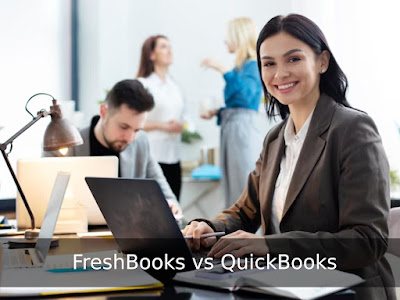
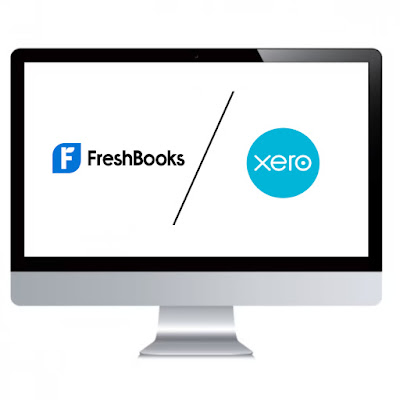
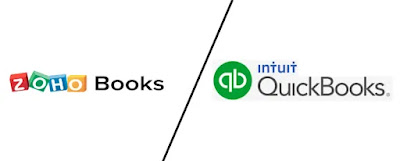
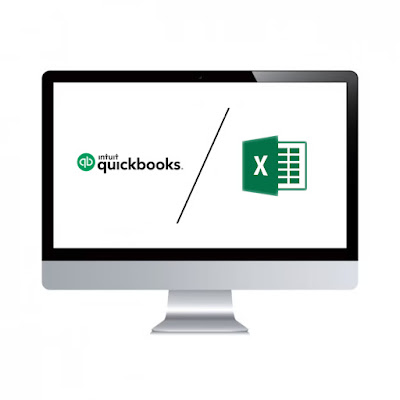
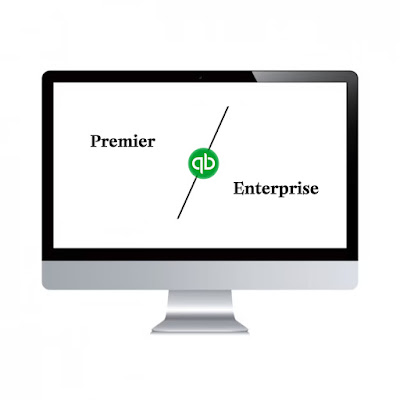


.jpg)
.jpg)

.jpg)